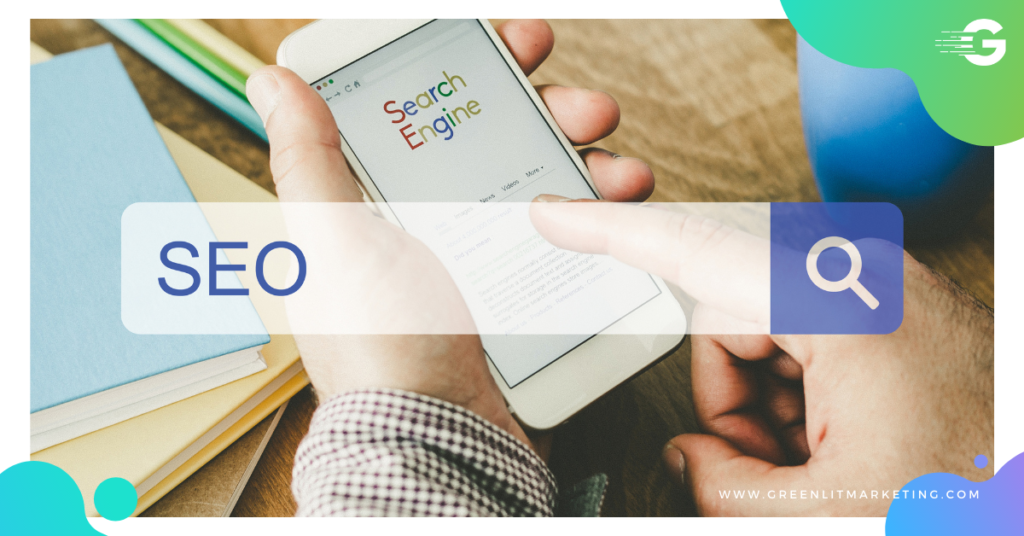You’ve accomplished your lifelong dream of owning your own business! You’ve opened up a brick-and-mortar storefront in your neighborhood, and you’re ready to start selling.
The problem is: No one is coming in…
Whether you own a local jewelry store, convenience store, clothing shop, or printing shop, you’re likely going to need to put some effort into spreading the word about your locally owned business to drive walk-in traffic.
For companies that provide goods or services to a local population, local SEO and advertising are excellent marketing tactics to drive more B2C business. Here’s what you need to know.
What Is Local SEO?
Local SEO is a search engine optimization strategy that’s hyper focused on your specific geographic location. It helps make it known that you serve the local market and makes your business more visible to local search results on search engines like Google.
Local SEO differs from traditional SEO in a couple of ways. First, it serves a different purpose: Rather than attracting any and all traffic online, it’s specifically targeting local consumers near your physical location or geographic area.
Second, local SEO also follows a different pattern. Search engines like Google know that certain types of businesses need results only from their immediate area. Someone searching for a plumber in their local area isn’t going to find international results useful. And someone looking to order sushi for dinner is going to expect to see local results they can actually order from. In these cases, the search engine’s algorithm uses a proximity factor to take a user’s location into account when they use queries with local intent. They don’t even need to type in their city or the term “near me” in their search; Google just knows the intent is to get a list of locations that are local to them.
Where to Focus Your Marketing Efforts: Local SEO Basics
To market your local business online, there are specific efforts you should focus your efforts on to ensure your marketing is as effective as possible at driving local traffic to your storefront.
Google My Business: You’ll definitely want to make sure you create a Google My Business profile. This is a free tool that helps you manage your online presence across Google, and it’s the first step to creating local search success. In fact, it offers the greatest impact for companies seeking local exposure. Your Google My Business profile will enable the search engine to generate and share accurate details about your business in Google Search and Google Map for local searches.
Local Keywords: When writing your website copy, make sure to add your local phone number and address to your contact page. Also add location keywords to your site that search engines can crawl. For example, use keywords like “San Francisco Bay Area” or “Serving San Francisco, East Bay, and the Peninsula.”
Local Landing Pages: If you have multiple locations, you’ll want to create local landing pages for each location. Each landing page should have local keywords on it, as well as optimized title tags and meta descriptions.
Data Aggregators: Another great way to improve your local SEO results is to use data aggregators, which are similar to the old-school Yellow Pages. Local data aggregators are companies that gather information about businesses (such as their business names, phone numbers, and addresses) and share that information with other services, such as maps, business directories, and mobile apps. All you have to do is create an account and input and verify your business information. Once you’re added to the database, that information is fed to other websites that use business data.
Customer Reviews: Review signals are also used to rank your business online, so encourage your local customers to write reviews about your business on sites like Google and Yelp. You might want to offer coupons for reviews.
You can create specific content and specials that work (like first-time buyer coupons or daily specials for walk-in traffic). What’s more, the agency can help you measure the effectiveness of your marketing tactics.
Local Advertising Overview: Direct to Consumer
While local SEO will enable you to organically attract local traffic to your storefront or local business, direct-to-consumer local advertising allows you to do so through paid means.
Local advertising tactics consist of:
Paid social media ads: Social media ads are great for local advertising because these sites have a wealth of data on consumers, including their locations. This means you can target your ads to hyper-local areas, so they’ll only be shown to people who are within that geographic area. For example, you can target mothers between the ages 30 and 50 that are located in Portland’s Northwest District. You can serve up a “first-time buyer coupon” to users who match this specific profile.
Intent-driven search ads: These ads are shown on Google and other search engines when users type in specific keywords you’ve identified as relevant to your local business. For example, the ads will only be shown to users who type in the words “pastry shop.” The ads will be shown whether or not they add in the words “near me” or the city or town name, thanks to the search engine’s proximity factor. A great idea here is to serve up a daily special for walk-in traffic when a coupon code is used.
Direct buys on related shops: You can also attract local traffic by placing display ads for direct buys on related shops. This is an excellent place to serve up a “We’ll match pricing for a competitor” type of ad.
Remarketing: Remarketing ads are only shown to people who have visited your website. The ads follow these website visitors around and show up as display ads on other sites they visit.
Local SEO and Advertising Are Complementary Efforts
As you can see, local SEO and local advertising use very different tactics. Which should you focus your efforts on?
Ideally, you should use both since they are complementary efforts. After all, they are all geo-targeted. Local SEO should be used as a long-term strategy because it takes time to organically improve your rankings and see results. In the meantime, use local advertising in the short term to drive traffic to your site (and visitors to your storefront).
Polygonal Advertising
What if you could get even more hyper-targeted than local SEO and local advertising? Is it even possible?
Yes! Polygonal advertising is the new guy on the block that can help you serve up the right ad in the right place at the right time.
What is it? Polygonal advertising integrates mapping technology with geo-location to enable you to serve hyper-local ads in your chosen geographic area. With polygonal advertising, you can literally draw a virtual line around the perimeter of your store (as close as three feet) to hyper target people walking by. This is compared to traditional geo-fencing, which only enables you to target prospects in a 30- to 100-meter radius around a map way-point.
Who should use it? Consider using polygonal advertising if you own a brick-and-mortar store and you’re trying to drive more walk-by traffic.
Why is it so cool? This technology is really impressive because it can allow you to serve ads only to people who are literally walking by your store (or even your competitor’s store!) based on mobile data. This leads to extremely accurate results.
Getting Started with Local SEO and Advertising
Getting started with local SEO and advertising can be overwhelming. How do you know which local keywords to target? How do you optimize your Google My Business profile? How do you create a social media ad budget or create remarketing ads?
You’re great at what you do, but you’re probably not a marketing guru, and that’s OK. Especially if you’re interested in polygonal advertising, it’s a good idea to work with an experienced marketing agency that specializes in this type of advertising to ensure your efforts translate into real results for your local business (without breaking the bank).
GreenLit Marketing can help you create the right local SEO strategy on your budget, and help you execute tactics and measure their effectiveness. Get started with an SEO audit by clicking the button below.



